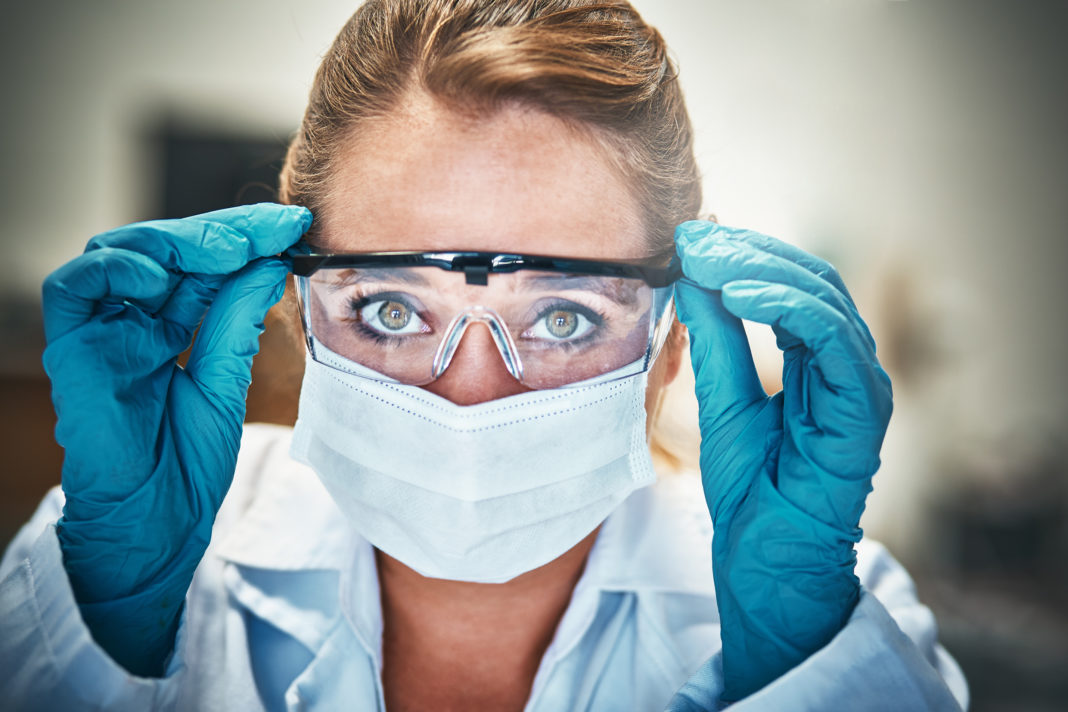Candidates: BRII-196 and BRII-198
Category: ANTIBODY
Type: Combination therapy consisting of non-competing SARS-CoV-2 neutralizing antibodies derived from convalesced COVID-19 patients.
2021 Status: Brii Biosciences said August 24 that its monoclonal antibody combination therapy, BRII-196 and BRII-198 showed a statistically significant reduction of 78%, relative risk in the combined endpoint of hospitalization and death compared with placebo in 837 non-hospitalized COVID-19 patients at high risk of clinical progression. The interim Phase III results emerged from an interim analysis of the NIH’s ACTIV-2 trial (NCT04518410) based on partial follow-up of the 837 participants, a reduction in both hospitalizations (12 active vs. 45 placebo) and deaths (1 active vs. 9 placebo) that were observed.
Additional subgroup analysis may further delineate the clinical benefits of early (≤5 days) versus late (6-10 days) treatment with BRII-196/BRII-198 following symptom onset, providing unique insight to inform real-world treatment decisions, Brii Bio added.
Upon completion of this study, Brii Bio said, the ACTIV-2 dataset will undergo a full analysis set to include participants enrolled in the U.S., Brazil, South Africa, Mexico, Argentina and the Philippines between January and July 2021. Data on the clinical efficacy of combination BRII-196/BRII-198 by variant type will also be evaluated as part of the study.
Brii Bio said April 29 that BRII-196/BRII-198 met pre-specified safety and efficacy criteria, permitting continuation of Phase III of ACTIV-2 as recommended by the study’s data and safety monitoring board. The DSMB reviewed an analysis of approximately 220 patients enrolled in the Phase II portion of ACTIV-3, ambulatory patients with COVID-19 who are at high risk for progression to severe disease Predefined safety and efficacy criteria—including assessments of antiviral activity and clinical efficacy relative to placebo—were evaluated.
The Phase III portion of the study, which has been actively enrolling participants, is expanding into international trial sites. Brii Bio, the study team and the trial sponsor, the NIH’s National Institute of Allergy and Infectious Diseases (NIAID), remain blinded to the data reviewed by the DSMB, the company said.
ACTIV-2 is part of the NIH Accelerating COVID-19 Therapeutic Interventions and Vaccines (ACTIV) public-private partnership, designed to develop a coordinated research strategy for prioritizing and accelerating development of the most promising treatments and vaccines. ACTIV-2 is a master trial through which NIAID is conducting multiple different trials of experimental therapeutics simultaneously. In addition to the BRII-196 and BRII-198 combination, ACTIV-2 includes sub-studies of AstraZeneca’s AZD7442 and VIR-7831, a Vir Biotechnology/GlaxoSmithKline partnered monoclonal antibody.
On March 3, Brii Bio said BRII-196 and BRII-198 failed to meet pre-specified efficacy criteria permitting expansion into the Phase III component of NIAID’s ACTIV-3 trial (NCT04501978). ACTIV-3 study evaluated the safety and efficacy of the BRII-196 and BRII-198 combination and its impact on clinical outcomes in approximately 150 hospitalized participants, compared with a standard of care comparison arm of approximately 150 participants. Standard of care includes Gilead Sciences’ Veklury® (remdesivir) and dexamethasone.
Investigational New Drug applications for the antibody combination have been submitted for the combination therapy to the FDA, the Department of Health in Hong Kong, and China’s National Medical Products Administration (NMPA).
2020 Status: Brii Bio joined Tsinghua University and Third People’s Hospital of Shenzhen on March 31 to announce a partnership and license agreement to discover, develop, manufacture and commercialize fully human neutralizing monoclonal antibodies against COVID-19. The collaboration aims to achieve an accelerated six-month timeline from the selection of a lead development candidate to first-in-human clinical trials, with potential for additional timeline acceleration, the partners said.
The partners also cited research by Linqi Zhang at Tsinghua University and Professor Zheng Zhang at Third People’s Hospital of Shenzhen, in a preprint published March 26 in bioRxiv. The researchers characterized antibody responses in eight COVID-19 patients and isolated 206 monoclonal antibodies specific to the SARS-CoV-2 receptor-binding domain. Of the antibodies with potential therapeutic potential against SARS-CoV-2, the most potent were P2C-1F11 and P2B-2F6.
COVID-19: 300 Candidates and Counting
To navigate through the >300 potential therapeutic and vaccine options for COVID-19, GEN has grouped the candidates into four broad categories based on their developmental and (where applicable) clinical progress:
● FRONT RUNNER – the most promising therapeutics/vaccines based on clinical progress, favorable data or both.
● DEFINITELY MAYBE – earlier phases with promising partners, or more advanced candidates in development that have generated uneven data
● KEEPING AN EYE ON… – interesting technology, attracting notable partners, or both, but preliminary data.
● TOO SOON TO TELL – longshots pending additional experimental and/or clinical data.
GEN has also tagged the most common treatment types:
● ANTIVIRAL
● VAX
● ANTIBODY
● RNA



